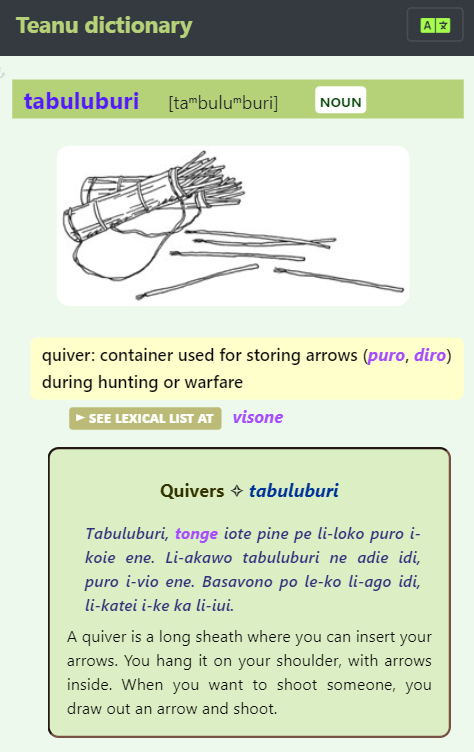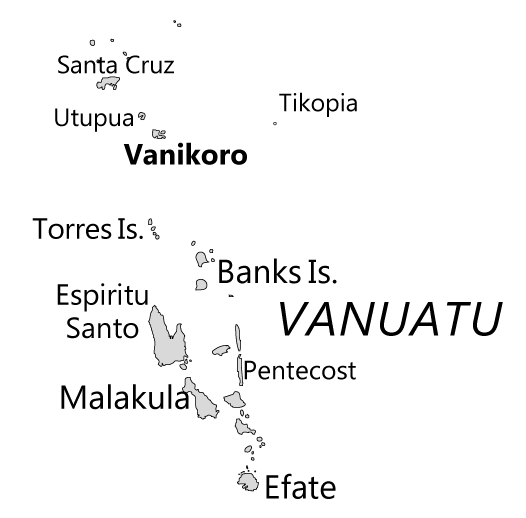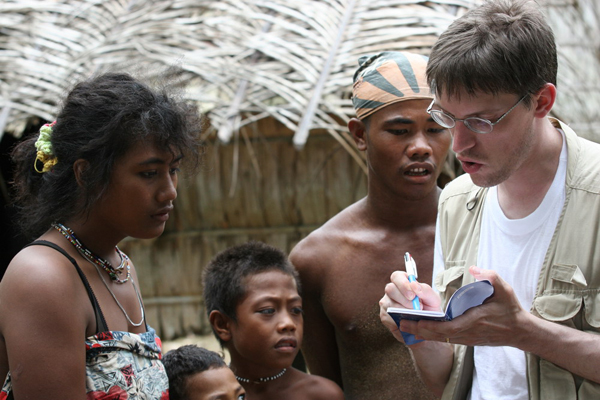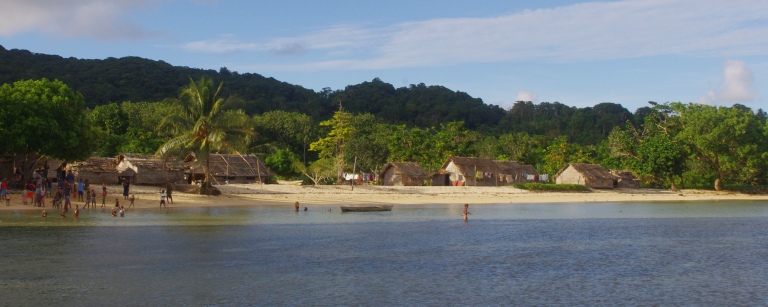
A dictionary of Teanu (Vanikoro, Solomon islands)

Welcome to the 2021 online version of my Teanu – English dictionary!
Teanu (a.k.a. Puma or Buma) is an Oceanic language spoken on the island of Vanikoro, in the province of Temotu, on the eastern tip of the Solomon Islands. With about 800 speakers, it is the largest language spoken on the island: it has now replaced the two other languages Lovono and Tanema, which are only remembered by a handful of elders.
I am proposing here the first dictionary ever published of Teanu – including lexical data from the highly endangered languages Lovono and Tanema.
- François, Alexandre. 2021.
Online Teanu–English dictionary,
with equivalents in Lovono and Tanema.
Electronic publication. Paris: CNRS.
→[http://tiny.cc/Teanu-dict]
My discovery of Vanikoro
Amidst my regular field trips to neighbouring Vanuatu, I've had only two occasions to visit the island of Vanikoro. One was an archaeological expedition in April-May 2005, organised around the fate of French navigator Lapérouse, who had perished on the island in 1788.  My second trip was in 2012, with a group of geologists who took me with them for a two-day visit to the island. To these two short stays, I was able to add a couple encounters with Teanu speakers – in Paris in 2008, in Honiara in 2017.
My second trip was in 2012, with a group of geologists who took me with them for a two-day visit to the island. To these two short stays, I was able to add a couple encounters with Teanu speakers – in Paris in 2008, in Honiara in 2017.
Altogether, my linguistic exposure to the language of Teanu was about 29 days in total. As for the two languages Lovono and Tanema, it was so difficult to meet the last speakers, that my time spent recording them was no more than a few hours each.

While I was on Vanikoro, I also dedicated a couple of days recording and transcribing stories in Tikopia, the Polynesian language spoken there. I was also lucky to meet native speakers of other languages of the Temotu area – Äiwoo, Natügu (Santa Cruz I.); Asubuo & Tanibili (Utupua I.)… – and collected a bit of data on each of them. Every encounter was a new occasion to marvel at the area's incredible linguistic diversity.
Conscious of the difficulty to access the island and its speakers, I was eager to make the most of these rare opportunities, and collected as much knowledge as I could. I was helped by the dedication of my consultants, who were always happy to teach me their languages. The people of Vanikoro are aware of the importance of preserving their knowledge and oral traditions, and thankful for any effort in that direction; I am in turn tremendously grateful for their kindness and support. I have special thoughts for the men and women who taught me their words and stories – many of whom have already passed away:
- for Teanu:
Teliki Thomas (†2009), Faithful Bila (†2010), Daniel Bakap, Teliki James Cook Pae (†2014), Bartholomew Alungo, Teliki Ben Tua Pine (†2010), Willy Usao (†2017), Marion Laki (†), Mary Laulei (†), Mofet Bwana, Wolta Simevio
– as well as Ezekiel Prians Tamoa, Ben Tua Apilaka, Stanley Wako Repwamu, Teka Repwamu, Janet Udeu, Ruben Ubi, Mosten Cook, David Tate, Mak Lakule, Tere Brad Alungo, Eddy Pae, Steve Koro. - for Lovono:
Teliki James Cook Pae (†2014), Rubenson Lono (1933–†2020), Emele Mamuli (†), Ana Ngae. - for Tanema:
Emele Mamuli (†), Lainol Nalo.






